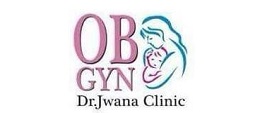All Departments
- PCOS Treatment
- STD Treatment
- Infertility Treatment
- Fibroid Treatment
- Endometriosis Treatment
- Ovarian Cyst Treatment
- Sexual Dysfunction
- Menopause Specialist
- Irregular Menstrual
- Laparoscopic Gynecologists
- Hysterectomy
- Urogynecologist
- Contraception
- Colposcopy
- AMH Testing
- O Shot
- G shot Treatment
- Vaginoplasty
- labiaplasty
- Clitoral Hoodectomy
- Vaginal Bleaching
- High-Risk Pregnancy
- Pregnancy Care
- Maternal Fetal Medicine
- Cesarean Delivery
- Painless Normal Delivery

Maternal Fetal Medicine
An overview:
Fetal medicine, or maternal-fetal medicine (MFM), is recommended by fetal medicine specialists such as obstetricians and gynecologist to manage a mother’s and her baby’s health complications before, during, and immediately after pregnancy.
Fetal medicine specialists have additional training and board certification in handling high-risk pregnancies.
Why is it needed?
Most pregnancies are fairly simple. However, some may convert to complex or high-risk pregnancies in progressing trimesters. Maternal-fetal medicines help to counter the complexity caused by pregnancy and keep both mother and fetus safe.
Factors that can cause a high-risk pregnancy
- Mother’s age (over 35 or under 17)
- Pregnancy-related health conditions.
- Preexisting health conditions or co-morbidities
- Bodily changes in pregnancy, such as excess weight gain, reaction to medicines, etc.
- Lifestyle factors such as smoking, alcohol abuse, and drug addiction negatively affect pregnancy.

Conditions treated by our Maternal Fetal Medicine Specialist
Our fetal medicine specialists have extensive skills and experience in managing high-risk pregnancies. Our competent FM specialists can safely treat the following medical complications of pregnancy such as:
- High blood pressure ( hypertension)
- Diabetes
- Endocrine disorders
- Thyroid gland fluctuations
- Clotting disorders
- Kidney or gastrointestinal disease
- Preeclampsia
- Infectious diseases
- Obesity
- Lupus
- Women with experience of pre-term births, stillbirth, pre-eclampsia, or recurrent miscarriages
- Multiple gestations (having twins, triplets, or other multiples)
- Fetal abnormalities such as growth restriction, congenital anomalies, fetal anemia, and other conditions
Treatment with Maternal-fetal medicine
- Our Maternal-Fetal Medicine Specialist suggests various diagnostic tests to recommend accurate fetal medicine treatment. The diagnostic procedure includes:
- Obstetrical detailed anatomy scan
- Fetal Doppler (umbilical, middle, cerebral, DV, DA)
Fetal Echocardiography
These diagnostic tests obtain anatomical scans of the fetus and examine its holistic growth and development. In addition, our obstetrics and specialist recommend fetal medicine to counter complications upon seeing any anomalies.
Invasive Procedures:
- Amniocentesis
- Chorionic villus sampling
- Cordocentesis intrauterine
- Fetal intrauterine transfusion
- Multifetal pregnancy reduction
- Transabdominal amnioinfusion
- Percutaneous fetal shunt placement
- Needle aspiration of the fetal compartment (cysts)
